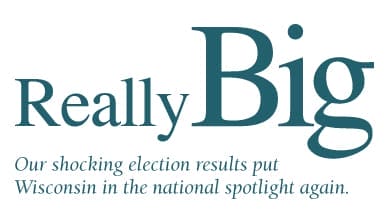By Stephen F. Hayes

On Nov. 4, 2008, Barack Obama won 59 of Wisconsin’s 72 counties. He won Wisconsin by 14 points. Two years later, Scott Walker won 60 of those 72 counties. He won Wisconsin by five points. Ron Johnson won by a similar margin.
That’s change.
There are many reasons for the shift. Economic growth is sluggish. Unemployment is high. Health care reform is unpopular. Deficits are growing. Americans loathe Congress. Voters are disgusted by the federal government. The list goes on. The complaints were specific. The frustration was not anti-incumbent, as many in the media and other Obama supporters argued. It was anti-Democratic and anti-big-government.
Much of the country saw a major shift from blue to red. Republicans were elected in districts and states that had not been friendly territory for years, in some cases decades.
Congressman John Spratt (D-S.C.), chair of the House Budget Committee and a survivor of the 1994 Republican Revolution, lost to state Sen. Mick Mulvaney. Congressman Jim Oberstar (D-Minn.), chair of the House Transportation and Infrastructure Committee, had served since 1974, until losing to political neophyte Chip Cravaack.
Many of the most significant Republican victories came in the Midwest, where John Kasich defeated incumbent Ohio Gov. Ted Strickland in a race the White House desperately wanted to win, and Republican Mark Kirk won Barack Obama’s old seat in the U.S. Senate.
But the two biggest victories in Wisconsin — Johnson and Scott Walker — make the Republican gains here among the most significant in the country.
In the case of Ron Johnson, it was how he ran and the Democrat he defeated. Beating Russ Feingold, a liberal icon, immediately makes Johnson an important voice in the Senate Republican caucus. But so does his background.
Johnson is not a lawyer, but a manufacturer — as his brilliant “whiteboard” ad conveyed so effectively. He’s a smart guy, but he’s not a professional politician and has no apparent interest in becoming one. That is a powerful tool in a world where reelection is often the highest priority.
And Johnson might be the purest blend of Tea Party/Republican Party in the coming Congress. His speeches at Tea Party rallies first caught the attention of influential conservatives and the Republican Party of Wisconsin, which, unlike many other state parties in the country, quickly understood the advantages of allying with the various Tea Party groups.
The fact that Johnson is of the Tea Party and in the Republican Party will put him in a position to serve as a bridge between Republican Party leaders in Washington and grassroots conservatives across the country.
Walker’s victory was important for other reasons. Wisconsin is a mess. Taxes are too high, spending is out of control, and Madison is dysfunctional. Walker is a problem solver. He tells people what he plans to do, and, with rare exceptions, he does what he says.
As one prominent Washington-based GOP strategist told me: “Scott’s popularity has less to do with what he’s saying and more to do with what he’s done.” National Republicans from Jeb Bush to Newt Gingrich to Haley Barbour paid careful attention to what Walker did in Milwaukee County.
On Nov.2, some two hours after polls had closed across the state, Walker took a call from Gov. Jim Doyle.
The two men chatted briefly, and Doyle congratulated Walker on his impressive win. “He was very gracious. I thought about asking him to stop the train, but decided it wasn’t probably the best timing,” Walker joked moments after the call ended.
A week later, however, Walker sat down with Doyle, listened to his case for funding the train, and promptly dismissed it. He shrugged off threats to pull the funding from Secretary of Transportation Ray LaHood and told me that his inclination was to escalate the fight, not run from it.
This, probably more than anything else, is why Scott Walker was elected governor. Not the train, specifically — though it represented government waste and arrogance in a way that was easy for voters to understand — but Walker’s simple way of talking about it. People don’t want the train. It costs a lot of money. We can’t afford it. I’m going to stop it. Walker’s stripped-down rhetoric is an asset.
There is no question that these two victories — along with Sean Duffy and Reid Ribble winning House seats and the GOP capturing the state Legislature — have once again focused attention on Wisconsin as a swing state in 2012.
Political strategists consider Wisconsin winnable for Republicans and Democrats alike in presidential elections. But it has been a quarter century since a Republican won Wisconsin — Ronald Reagan in 1984.
Could that be changing? Ron Johnson’s vote percentage was the highest for a Republican senatorial candidate since 1956. And Walker, as noted, won 60 of 72 counties. So Wisconsin is in play in 2012.
No surprise, then, that just before Jim Doyle called Walker, he took another call — the first congratulatory call he received. It was presumed 2012 GOP presidential frontrunner Mitt Romney.
Stephen F. Hayes, a Wauwatosa native, is a senior writer for The Weekly Standard. His books include Cheney: The Untold Story of America’s Most Powerful and Controversial Vice President (HarperCollins).




